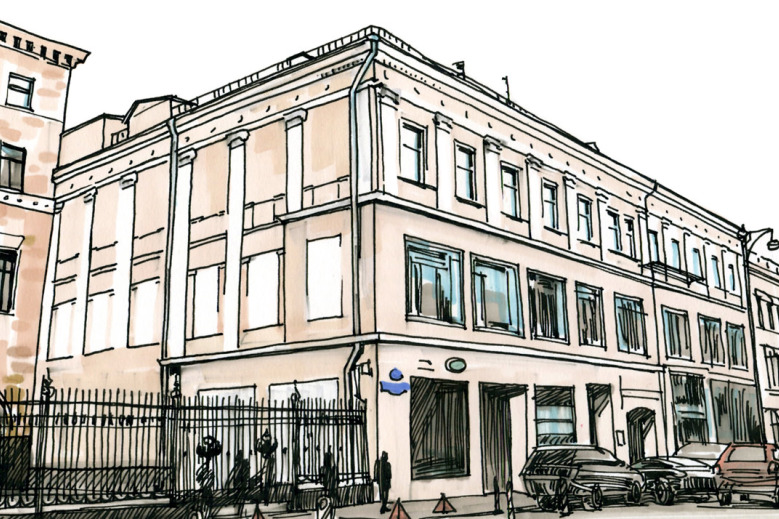'I Gulped down Ginzburg’s Article with Greedy, Insatiable Pleasure'
On 1st to 3rd June, the remarkable Italian historian and one of the founders of microhistory, Carlo Ginzburg will give a series of open lectures at the HSE. Professor Ginzburg has been invited to Moscow by the Poletayev Institute for Theoretical and Historical Studies in the Humanities (IGITI). His translator, Professor at the School of Philosophy, Sergey Kozlov spoke to the HSE News Service about how he was inspired to translate Ginzburg’s work into Russian which led to them becoming firm friends.
Historian and Demographer Focuses on the Role of Forced Displacement in Population History
On Tuesday, May 19, at 6.00 pm, Alain Blum (Centre d’études franco-russe de Moscou, INED and EHESS in Paris) will give a talk at the International Research Seminar in Sociology (School of Sociology) called ‘Forgotten stories of deportees in the USSR — The multiple lives of a single individual’. Ahead of his lecture, he has spoken with the HSE news service on a variety of topics, including his experience as a demographer, his transition into Soviet history, and his upcoming research plans.
Do All Crumbling Empires Behave the Same?
In his honorary lecture 'Twilight of an Empire', at the HSE April International Conference, Professor Guillermo Owen, Distinguished Professor of Applied Mathematics at the Naval Postgraduate School in Monterey, California, considers the case of the late Roman Empire - a once-powerful incumbent state which is beginning to lose its power - and compares it with examples nearer our own time. Professor Owen is a member of the Colombian Academy of Sciences, The Royal Academy of Arts and Sciences of Barcelona, and the Academy of Sciences of the Developing World. He is associate editor of the International Game Theory Review. In an interview with the HSE English News service Professor Owen made comparisons in a game theory approach to the behaviour of the late Roman Empire and the Soviet Empire of the 1980s and 1990s.
HSE Petersburg Historians and Social Researchers at the XVI April Conference on Social and Economic Development
With less than a month until the XVI International April Conference opens in Moscow, academics from HSE St Petersburg are preparing sections and seminars on a broad range of research topics from space exploration in pre-revolutionary Russia to contemporary happiness and work.
Understanding Our Own History by Learning about Another’s
Social Historian, Franziska Exeler has focussed much of her research on the Soviet Union and the Second World War but at HSE she is asking students to find out what happened in other countries to try to understand the Soviet experience in a global context. She talked to the HSE English News website about teaching and researching at the HSE International Centre for History and Sociology, about discovering Moscow’s architecture and about her life as an academic in Russia.
‘When We Study History, We Must Be Introspective’
Nathan Marcus, Assistant Professor of History, recently joined the HSE campus in St. Petersburg. A scholar of Modern European History, he has a book that will soon be published by Harvard University Press. Recently, he spoke with the HSE news service about his research and teaching interests, as well as on the important role that studying history plays in today’s society.
70 Years on: Remembering Victory in WWII — A View of Post-war Life in the Soviet Union
In the year that marks the 70th anniversary of victory in the Second World War, we talk to Kristy Ironside, who received her BA and MA from the University of Toronto before going on to complete her PhD at the University of Chicago, and who is currently researching life in the Soviet Union in the post-war years. Kristy Ironside’s work examines what the War meant to ordinary people, how their lives changed — and how Soviet society coped with the aftermath.
‘Our Programme Turns Tourism Lovers into Professionals’
Professor Valery Gordin, Head of the Faculty of Economics and Management at HSE St Petersburg, presents the Master’s Programme The Experience Economy; Hospitality and Tourism Management. He is academic supervisor of the course which comes under the Events Management and Cultural Tourism field of study at HSE St Petersburg. Teaching is in Russian and English.

HSE. Cornerstone: Petrovka 12, Building 1
During the years of Lenin's New Economic Policy (NEP), this building housed Moscow's most fashionable institution, The Centre for the Development of the New Soviet Attire. The vast window displays were populated by mannequins in dresses, and fashion shows drew people from all segments of society: members of the Party elite, 'NEP-men' and their wives, and ‘heroes of industry’.
Usable Pasts
In 2015, the international master's programme in English will launch, called Applied and Interdisciplinary History 'Usable Pasts'.The programme is headed by Associate Professor at the School of History of the St Petersburg Faculty of Social Sciences and Humanities, Julia Lajus.


Registration deadline - April 30